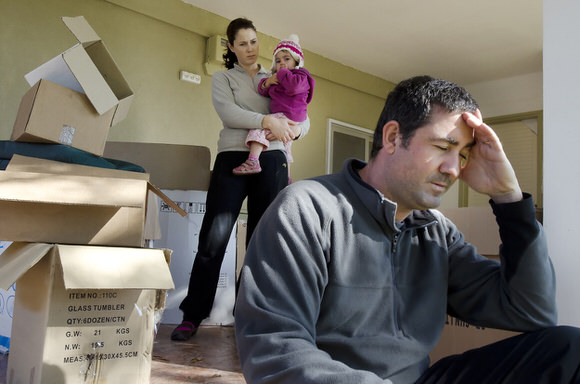House Poor | What it Really Means
By Douglas Hoyes, Founder & Trustee of Hoyes, Michalos & Associates
If you buy a house and it increases in value, your wealth increases. That sounds great, but that's only one side of the story. Your net worth may be increasing, but you could actually be risking your financial health if you don't consider how your monthly housing costs affect your overall budget. If you are spending a disproportionate share of your family income on home ownership costs you are likely to become 'house poor' regardless of the appraised value of your home.
Sadly, this is a common situation. And the implications can be quite devastating.
What Does It Mean To Be House Poor?

I recently met with a married couple whom I will call Joe & Jane here. They have two children, and they both have good jobs. When their second child was born they decided to buy their dream home. It was in a great neighbourhood, close to schools and shopping, and it had a big backyard. They put in a swimming pool and did some renovations, and were quite happy with their house.
Living in the house made them feel "rich." Unfortunately for Joe and Jane, looking at the bills each month made them feel "poor".
They had a mortgage payment of $2,000 per month which, on two incomes, they could maintain. It was everything else that was digging them deeper into the proverbial hole.
Each month they paid:
- $2,000 for the mortgage
- $400 in property taxes
- $400 in utilities and insurance
- $500 on the loan they got to build the swimming pool
- $600 on the line of credit they used to finance the renovations on their home.
That's $3,900 per month, almost double their original mortgage payment. And they were looking at more cash outlay in the future. The furnace and roof need replacing and they didn't know where they would find the cash to make the necessary repairs.
Foregoing Opportunities
Joe and Jane are house poor. For them, that means that they can't afford to:
- Enroll their children in after-school sports and other activities;
- Go on an out-of-town vacation; or
- Go out for dinner with their friends.
When I met with them I asked them a simple question: Is it worth it? With me, there are never any simple questions, so I elaborated:
I asked them if the bigger house and all the extras was worth the constant stress caused by trying to juggle all that debt?
After some thought, they concluded they couldn't afford their home the way things stood. The good news was Joe and Jane came to this conclusion early enough to do something about it. All too often I've seen individuals continue to struggle, using credit cards and other debts to keep up with their monthly payments until this, too, became unsustainable.
Knowing What's Affordable
When deciding how much home you can afford, you need to factor in all current and future costs of operating your home. You also need to consider your other living expenses and financial goals.
Be sure to budget for all household operating costs like insurance, utilities and repairs. You may want to landscape or renovate. Expect the unexpected: roofs leak, appliances break. Mortgage rates are at an all-time low, so it's likely that eventually they will increase. Make sure you can afford any possible increase in your mortgage payment if rates increase, and factor in any potential reduction in income like pregnancy leave, illness or job loss.
There is a rule of thumb that says if your housing costs exceed 35% of your income you are at risk. The truth is that number can vary significantly.
I've seen instances where 20% was too much and others who could manage housing costs as high as 50% of their income. The determining factor is the size of your other monthly expenses. Ask yourself if you can manage all of your home expenses and living expenses and still have room to save and enjoy life. If you can't, then you are likely house poor and this could lead to financial trouble.
If you are buying a home for the first time, make sure you buy less, not more, than you can comfortably afford. If you are over-extended, you may have to consider selling your home and downsizing or even renting.
That's what eventually happened to Joe and Jane. They sold their home and moved elsewhere in the neighbourhood for significantly less. They now have enough cash to go out for the occasional dinner, and they are planning a family vacation. Perhaps, in a few years, when they have saved up a larger down payment, they will buy another house, but for now they are happy not to be "house poor".
OWN. GROW. PROTECT. First Foundation is the one-stop-shop for financially responsible Canadians looking to get great advice and save money. Whether arranging financing for a property you OWN, or looking…
